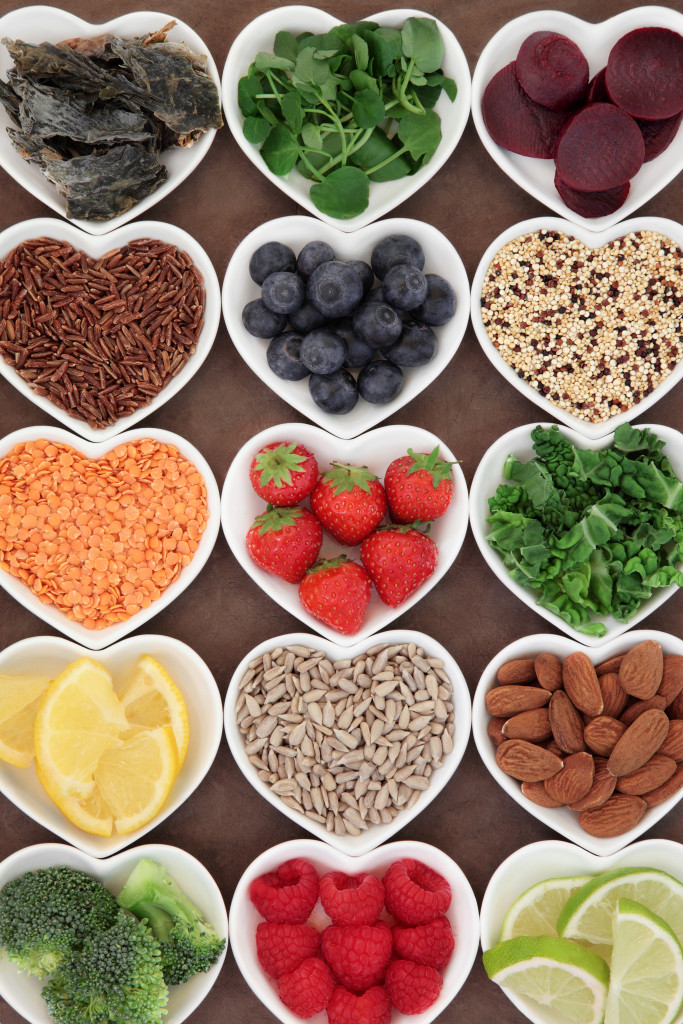

Contributed by: Crystal Karges, MS, RDN, IBCLC for Addiction Hope
If you or your loved one has suffered with an addiction to drugs or alcohol, you will likely find that the recovery process involves rebuilding the physical damage that has been done to the body.
The good news is that with sufficient planning and treatment, the body can often recover from many of the complications and side effects that have resulted from addiction.
Minimizing the damage from addiction can occur with the guidance of a professional treatment team, and seeking treatment early can also help improve the prognosis.
Side Effects Become Consequences
Some of the physical consequences resulting from addiction may be the side effect of lack of nutrition or inadequate nutrient intake. Many individuals who suffer with addiction often neglect their food intake as they are often preoccupied with their consuming their drug of choice. This can result in malnutrition, which can take a dramatic toll of the body.
A common myth is that weight is associated with nutrient status, however this is not necessarily the case. A person can be at a normal weight for their height, or even overweight or obese and still suffer from malnutrition. Individuals are considered to be malnourished if they do not have adequate calories and protein to support growth or maintenance of body functions.

Addicts can become malnourished, even if eating enough food, if the body is suffering from medical complications resulting from addiction, such as cirrhosis of the liver, hepatitis, or other disease states.
If the body cannot properly utilize the food that is being eaten, this will also result in malnutrition.
Preventing malnutrition or restoring the body that has been malnourished from drug/alcohol addiction is high priority in the recovery process. This begins by disrupting the addiction behaviors so that the body can be adequately fed. This often coincides with treatment and the subsiding of drug and alcohol use.
More Variety = More Nutrients
Eating a diet that includes a variety of foods can provide the nutrients needed without the interference of other substances, such as drugs or alcohol. In addition to a well-balanced diet, some individuals recovering from addiction may benefit from supplementation to support their healing and recovery process.
Vitamin therapy can also be helpful in supporting the body through withdrawal symptoms in the early phases of treatment.
The following vitamins may be helpful for the recovering addict:
- Vitamin C: This water-soluble vitamin can help support a weakened immune system as well as normal growth and development. Vitamin C can be found in many fresh fruits and vegetables and taken separately through supplemental form.
- Thiamine (Vitamin B-1): This B-vitamin is essential for brain and nervous system function. This vitamin is commonly lost with chronic alcohol use, and supplementation can help replenish stores that have been depleted in the body.
- Fat Soluble Vitamins (Vitamins A, D, E, and K): Poor nutrition often results in the lack of these important nutrients in the body. These essential vitamins are necessary for many functions, including bone and blood health, metabolism, muscle function, immune system and more. Many processes in the body cannot occur without a sufficient amount of these nutrients. Additional supplementation may help but should be taken under the guidance of a physician, as these nutrients can be toxic in excessive amounts.

Getting Proper Help
If you are interested in vitamin therapy or nutritional supplementation during the course of your recovery from addiction, be sure to discuss these concerns with your primary doctor and/or treatment team.
Vitamin supplementation is not something that should be self-administered, as vitamins can interfere with other medications that you may be currently taking.
Your physician and treatment team can best assess your current condition and determine what vitamins may be appropriate for you to take via supplementation as well as the dosing that would be most helpful for you.
It is important ot note that supplementation cannot replace the foundation of a healthy diet, and nourishing your body first with adequate nutrition is the first step in restoring and healing your body. If you are not sure where to begin or how to eat a healthy diet, you may consider working with a Registered Dietitian, who can help guide you through this process. Above all, have hope that with proper care and attention, your body can be restored and healed!
Community Discussion – Share your thoughts here!
How has nutrition played an important role in your recovery process?
Last Updated & Reviewed By: Jacquelyn Ekern, MS, LPC on March 20th, 2015
Published on AddictionDisorderHope.com
